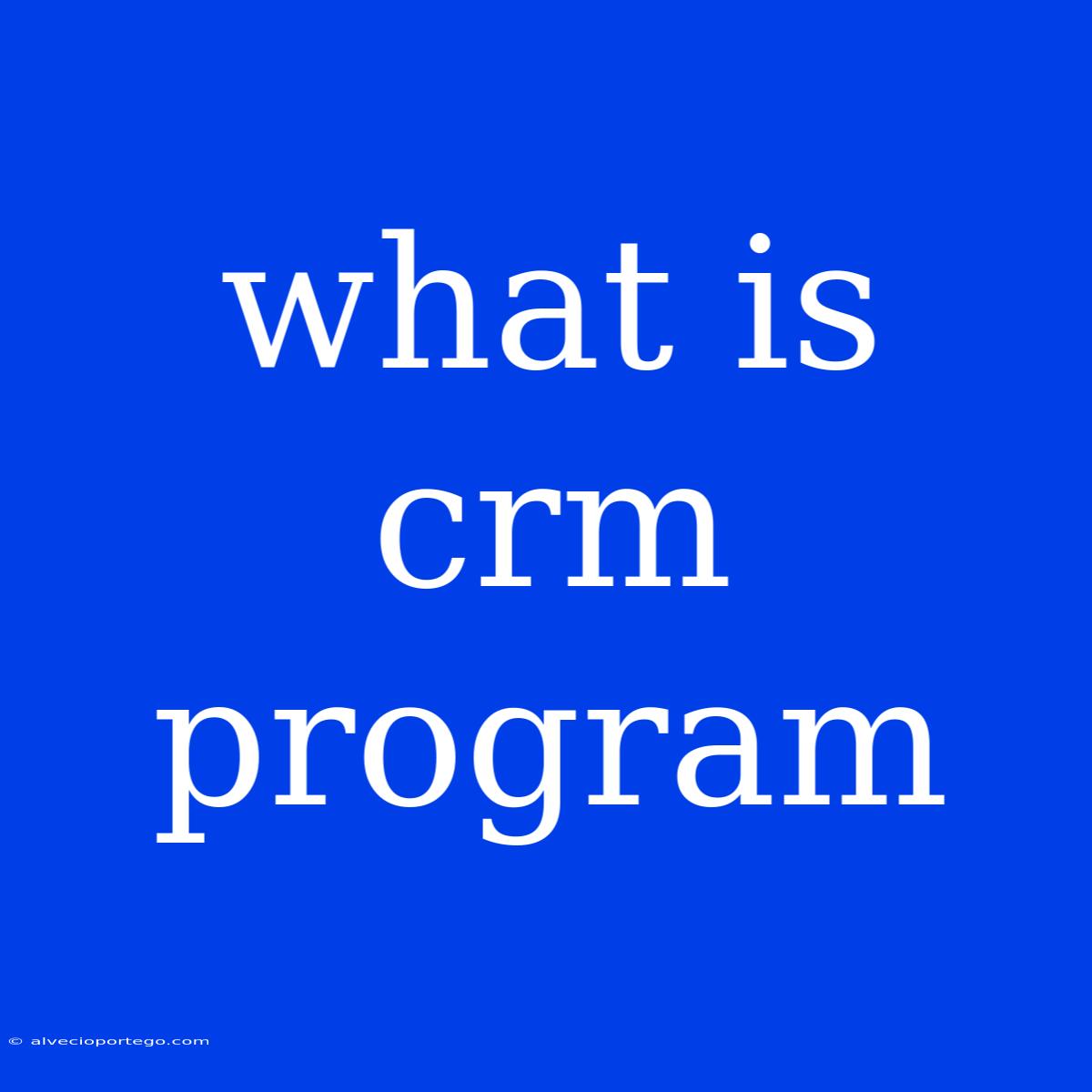What is a CRM program?
CRM (Customer Relationship Management) is a strategy and technology used by businesses to manage and improve their interactions with current and potential customers. In essence, it's about building stronger, more lasting relationships with your customers to drive sales and loyalty.
Key Components of a CRM Program
- Customer Data: CRM programs store extensive information about your customers, including contact details, purchase history, preferences, and interactions with your brand.
- Customer Interaction Management: This involves tracking and managing all communications with customers, whether it's through email, phone calls, live chat, social media, or any other channel.
- Sales Automation: CRM tools can automate various sales processes like lead generation, lead scoring, opportunity management, and forecasting, increasing sales efficiency.
- Marketing Automation: CRM platforms facilitate targeted marketing campaigns based on customer data and behavior, enabling personalized communication and offers.
- Customer Service Automation: CRM systems can automate customer service tasks like ticketing, self-service portals, and knowledge bases, improving response times and customer satisfaction.
- Analytics and Reporting: CRM programs provide insights into customer behavior, sales performance, and marketing campaign effectiveness, allowing you to make data-driven decisions.
Benefits of Implementing a CRM Program
- Improved Customer Relationships: CRM fosters deeper customer understanding and personalized interactions, enhancing customer satisfaction and loyalty.
- Increased Sales and Revenue: By automating sales processes and targeting the right customers, CRM drives sales growth and revenue generation.
- Enhanced Marketing Effectiveness: Data-driven marketing campaigns lead to higher conversion rates and a better return on marketing investment.
- Improved Customer Service: Efficient customer service workflows and self-service options result in faster resolutions and happier customers.
- Better Decision Making: CRM provides valuable insights and data to support strategic business decisions.
Choosing the Right CRM Program
The best CRM program for your business depends on your specific needs and requirements. Consider factors such as:
- Industry: Different industries have specific CRM needs.
- Business Size: Small businesses may require a simpler CRM than large enterprises.
- Budget: CRM solutions come in various price ranges.
- Features: Evaluate the functionalities and integrations that are essential for your business.
By implementing a comprehensive CRM program, businesses can significantly improve their customer engagement, boost sales, and ultimately achieve greater success.

